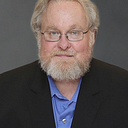The Case Against “Polish-American voters are key to re-electing President Trump”
In an essay published in the American Thinker entitled, “Polish-American voters are key to re-electing President Trump,” William Ciosek makes the case in favor of Polish-Americans’ voting to re-elect the President. The argument is completely unpersuasive.
Ciosek begins with an assertion that Trump, “won an estimated 70 to 75% of the Polish-American vote in 2016.” He cites no source for this number. In fact, he states the number twice, with no evidence. It appears that through repetition Ciosek is trying to make it seem as though Trump has overwhelming support in the Polish American community. This is a poor way to construct an argument.
The best data about how Polish Americans voted in 2016 seems to be that presented by Dominik Stecula, where he demonstrates that, “many of the pivotal counties in Michigan and Pennsylvania that flipped from Obama to Trump — such as Macomb County in Michigan (12 percent Polish) and Luzerne County in Pennsylvania (15 percent Polish) — include some of the most highly concentrated numbers of Polish Americans in the United States.” However, Stecula cautions that, “(w)hether Polish Americans actually voted for Trump in large numbers, however, is not clear. Attaching too much meaning to county-level votes is an ecological fallacy. Polish Americans have not always voted as a bloc.”
Ciosek then suggests that Trump has an “outside chance” of winning the state of New York because of what he describes as the, “incompetence, left-wing extremism, and oppressive lockdown restrictions of New York’s governor and New York City’s mayor.” Ciosek may refuse to recognize the struggles and successes New York experienced during the earlier days of the Corona virus pandemic, but the voters of New York were able to see. A July poll found that, “60% of New Yorkers registered to vote rated (New York Governor) Cuomo’s performance as excellent or good.” No one likes lockdowns, but mature and responsible people accept them as necessary to defeat this deadly virus.
Ciosek then claims that, “Donald Trump has proven himself to be a historic president as regards Poland’s relationship with America and the interests of Polish-Americans.” Indeed he has, if by “historic” we mean “unable to criticize Vladimir Putin.” The Trump campaign welcomed the support of the Russian strongman during the 2016 campaign. Donald Trump may have given a nice speech in Warsaw, but his cozy relationship with Vladimir Putin, who most definitely does not have Poland’s best interests at heart, should give Polish Americans pause for concern.
Ciosek then writes, “Polish-Americans are predominantly Catholic and one of the strongest pro-life ethnic coalitions in the U.S. President Trump has become the greatest pro-life president in recent American history and is fighting relentlessly to defend the rights of the unborn.” Ciosek does not state what Trump has done about abortion, nor does he take a very broad perspective on what it means to be pro-life.
James Martin, S.J. presents a broad perspective on being pro-life when he argues that the position also requires protection for the “Black man or woman fearing for their lives,” “the refugee or migrant who are desperate to save the lives of their children,” and “the LGBT teen who is tempted to take their life because of bullying, harassment or violence.” By the stronger standard, Donald Trump comes up very short indeed on the truly pro-life scale.
Ciosek then claims Polish Americans can help fight what he calls the “current domestic surge of Marxist revolutionaries.” It is unclear exactly to whom he is referring in this needlessly inflammatory phrase. However, it is a real insult to the Polish and other victims of Marxism to suggest that the moderate reforms promoted by American progressives are anything like the cruelty of the communist regime that once terrorized Poland.
William Ciosek tries to make a case for why Polish Americans should vote to re-elect Donald Trump. The argument fails for lack of evidence and sound reasoning.
David J. Jackson’s major research interest is the influence of entertainment media on the development of young people’s political beliefs in English speaking countries. He is the author of the book Entertainment and Politics: The Influence of Pop Culture on Young Adult Political Socialization, 2nd Revised Edition (Peter Lang Publishing, 2009), as well as scholarly articles in such journals as Political Research Quarterly, International Journal of Canadian Studies, Polish American Studies, American Review of Canadian Studies, and Journal of Heritage Tourism. From September 2007 to February 2008 he taught at the University of Lodz in Poland as a Fulbright Lecturer, and in 2009 he published his chronicle of his time in Poland entitled Classrooms and Barrooms: An American in Poland (Hamilton Books).
While he is a professor of political science at BGSU, the opinions expressed here are his own, and not those of BGSU or any of the outlets where he has published his academic works.
